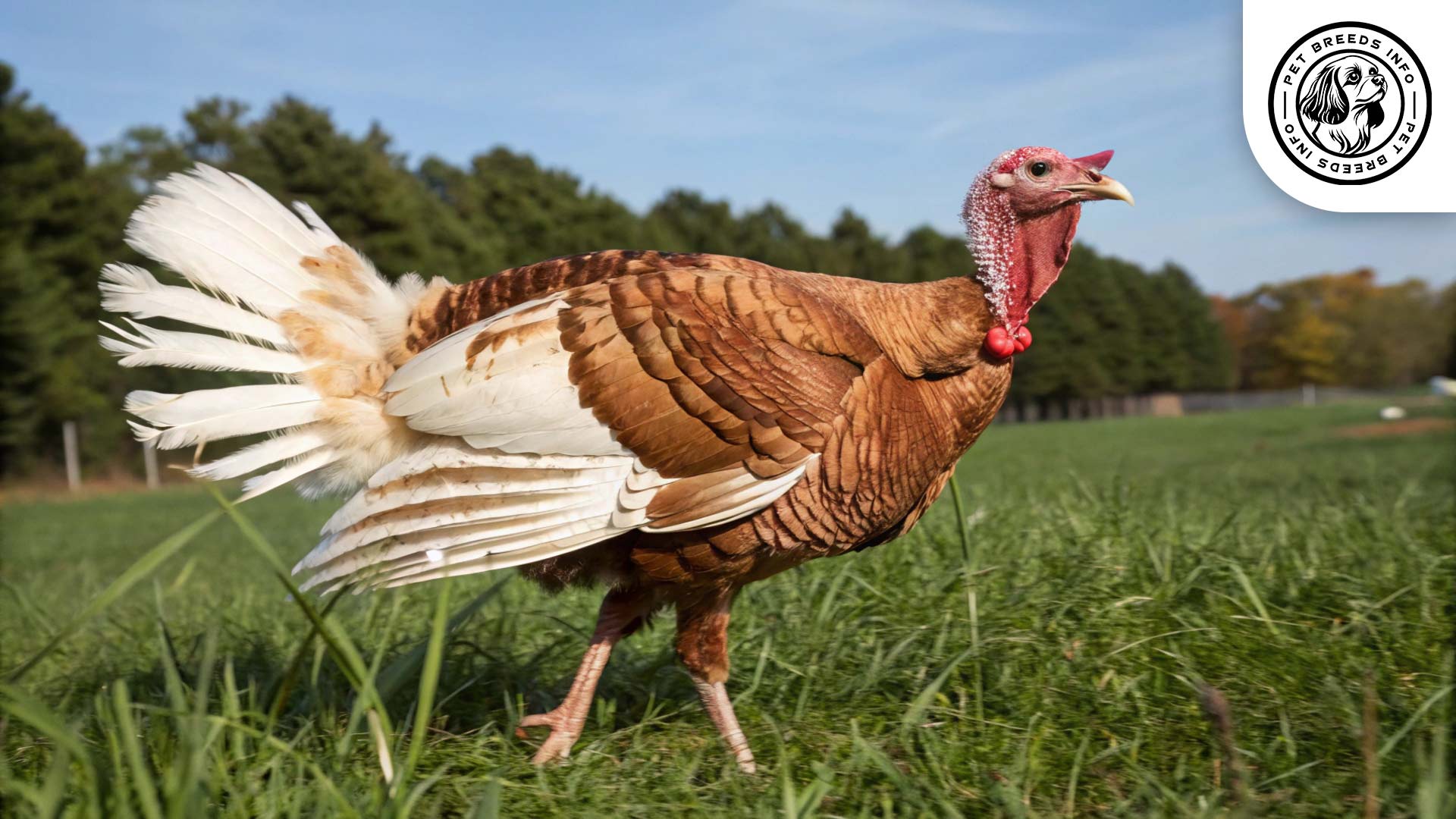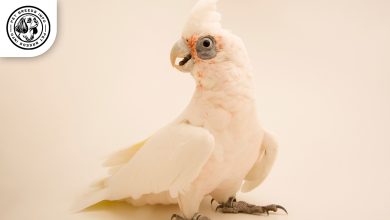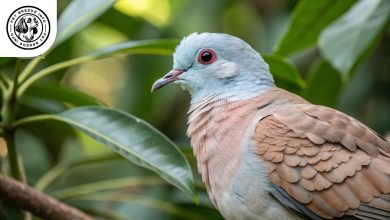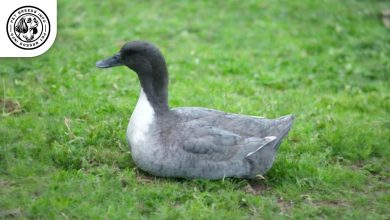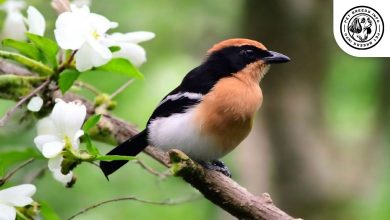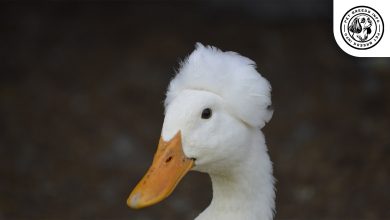Jersey Buff Turkey Breed: Personality, Lifespan, Food & Care
General Introduction of the Breed
The Jersey Buff Turkey is a heritage breed known for its distinctive buff-colored plumage. It originates from the United States and has historical significance in American poultry farming. The breed was developed in the early 20th century and enjoyed popularity as a meat bird due to its unique color and good growth rate. Though its numbers declined over time, conservation efforts have helped maintain its presence among heritage turkey breeds.
Table of Contents
| Common Name | Jersey Buff Turkey |
| Scientific Name | (Not mentioned in the text) |
| Origin | United States |
| Size | Males: 21-23 pounds, Females: 12-14 pounds |
| Lifespan | 5 to 10 years |
| Talking Ability | (Not applicable to turkeys) |
| Colors | Buff |
| Noise Level | (Implied to be typical turkey sounds, not explicitly rated) |
| Social Behavior | Social, enjoys flock interaction |
Physical Characteristics
The Jersey Buff Turkey is a medium-sized breed with males typically weighing between 21-23 pounds and females around 12-14 pounds. It features soft, buff-colored feathers that give it a striking appearance. Unlike other turkeys, its plumage lacks dark markings, making it a uniform-colored bird. Its eyes are a dark brown shade, and the bird has a pale-pink beak. The Jersey Buff Turkey has a well-proportioned body with strong legs and a moderate tail length.
Read More: Chestnut-breasted Mannikin
Personality and Temperament
This breed is known for its calm and docile temperament, making it easier to handle compared to more aggressive turkey breeds. It is intelligent and can recognize its caretakers over time. Jersey Buff Turkeys are social birds that enjoy flock interaction and do well in free-range environments. While they may exhibit some natural foraging instincts, they are not overly aggressive or overly energetic, making them a manageable breed for farmers and homesteaders alike.
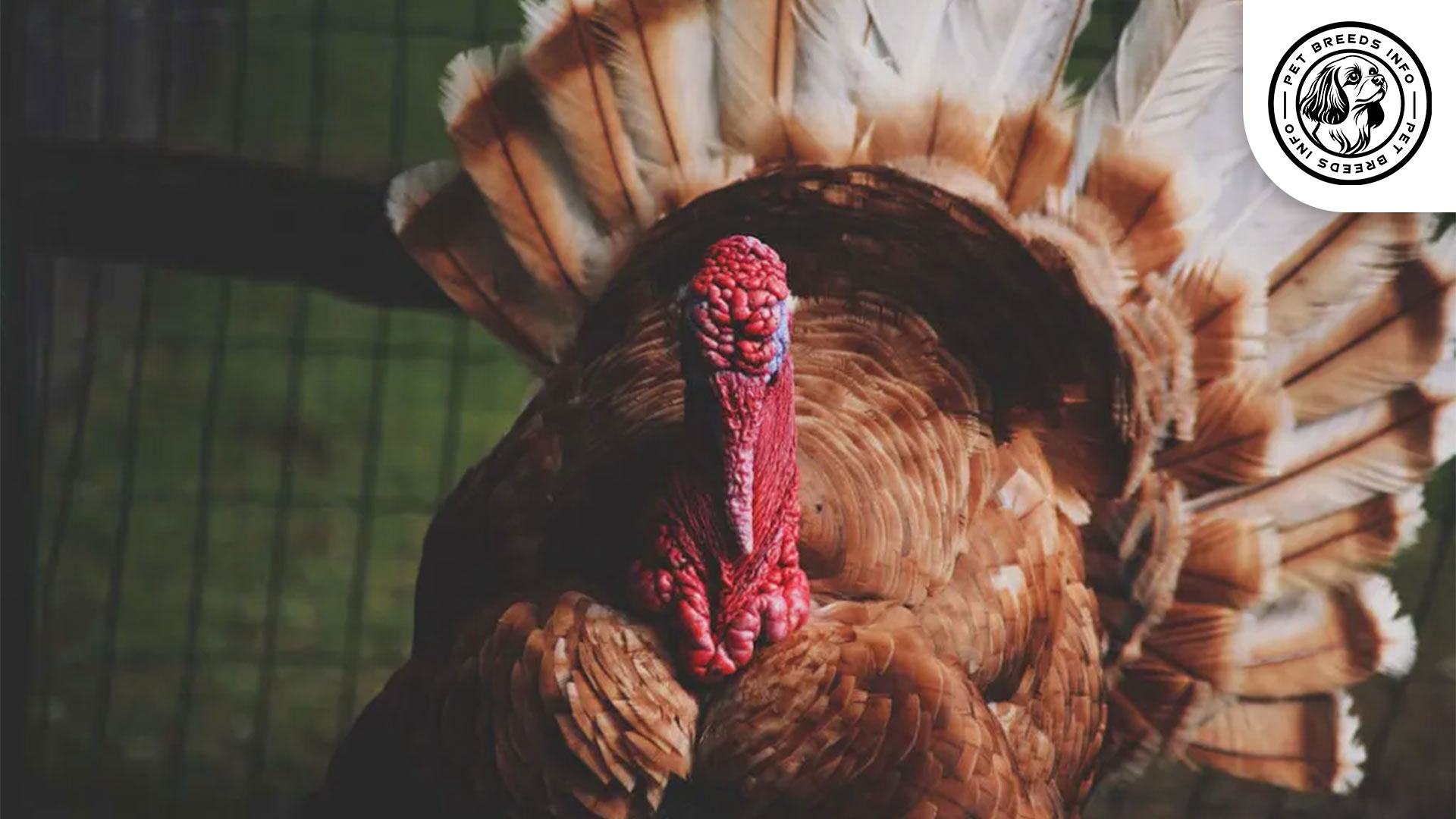
Care and Maintenance Requirements
Jersey Buff Turkeys require access to open space where they can roam and forage. They thrive best in free-range or backyard settings with ample room to move. Their housing should provide protection from extreme weather conditions, especially cold temperatures. Grooming needs are minimal, as their feathers remain clean with proper foraging practices. Hygiene care, including keeping their living space dry and clean, is essential to promote good health.
Diet and Nutrition
The optimal diet for Jersey Buff Turkeys includes a high-protein poultry feed, especially during their early growth stages. Supplemental grains, such as corn and oats, can be included to meet their energy needs. They also benefit from natural foraging, consuming insects and greens. Certain foods, like chocolate, avocado, and highly processed foods, should be avoided. Proper portioning and providing fresh water daily are vital for their overall health.
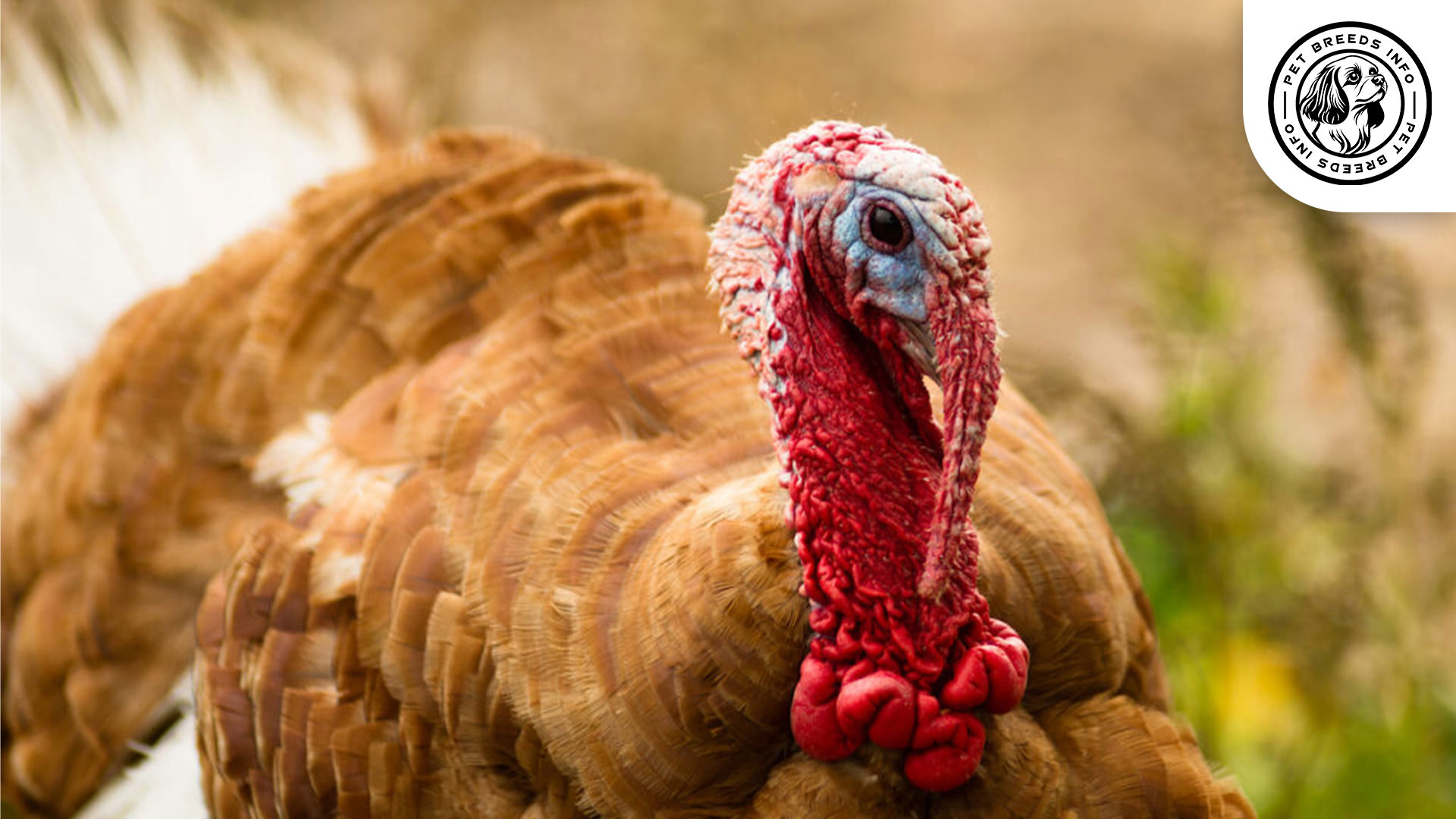
Health and Common Medical Issues
Jersey Buff Turkeys are generally hardy but may face common poultry health issues such as respiratory infections, mites, and nutritional deficiencies if not properly cared for. Regular check-ups, clean housing, and a balanced diet help prevent diseases. With good care, their average lifespan ranges between 5 to 10 years. Vaccinations may be necessary in commercial breeding operations or in regions prone to avian diseases.
Read More: Buckeye Chicken
Training and Behavior Management
Though turkeys are not typically trained like dogs or cats, the Jersey Buff Turkey responds well to familiar caretakers and routines. They can learn to follow feeding schedules and recognize safe areas. Providing a calm and non-stressful environment helps reinforce good behavior. Encouraging natural foraging in a secured outdoor space can keep them engaged and mentally active.
Interaction with Other Animals and Humans
Jersey Buff Turkeys tend to be friendly with humans and can coexist with other poultry breeds. They interact well with children when raised in a controlled environment but require supervision to ensure safe handling. As flock animals, they do best when kept in groups rather than isolation. While they are not aggressive, larger or more dominant birds might intimidate them, so proper socialization is recommended.
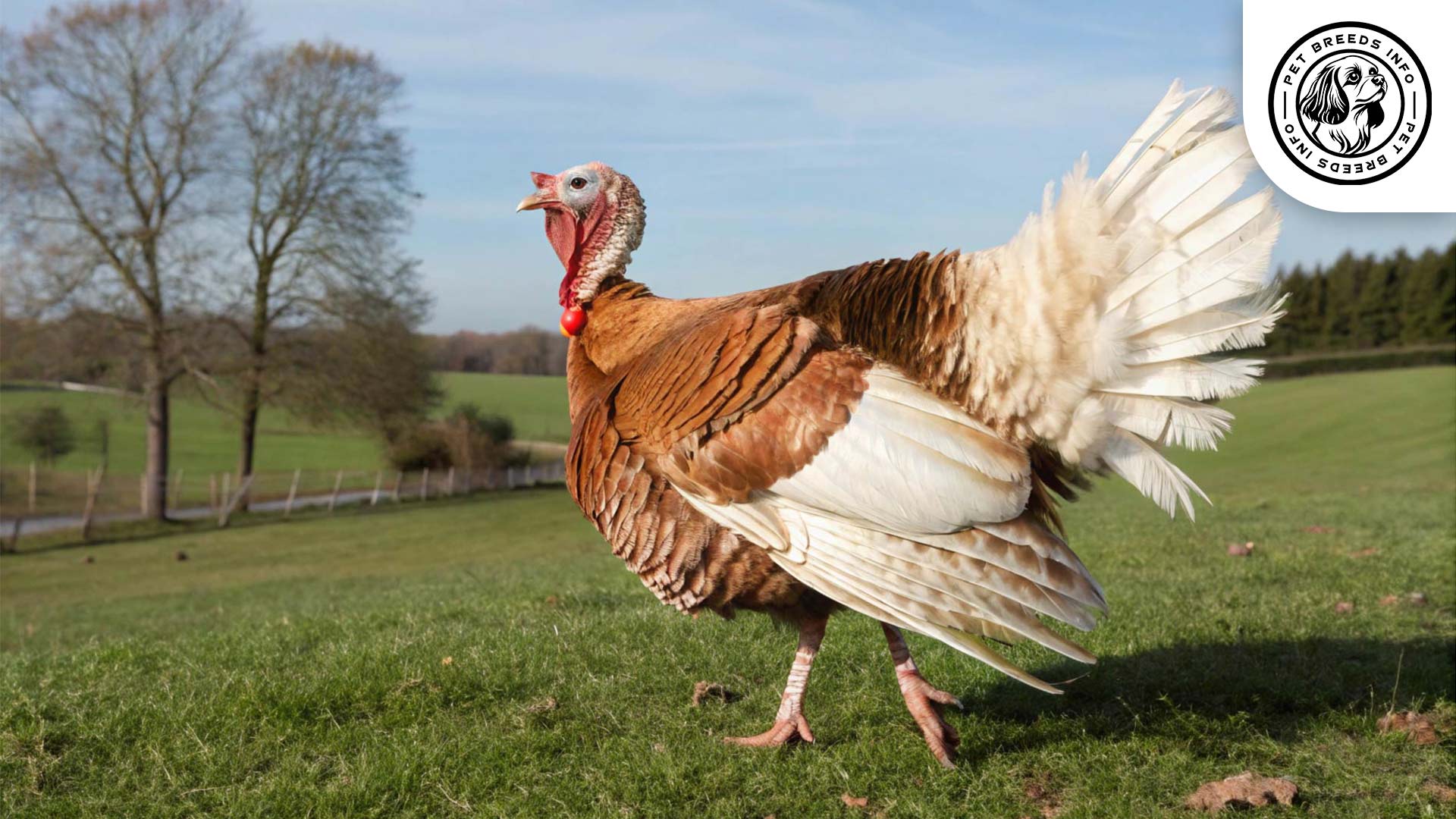
Price and Availability
The cost of a Jersey Buff Turkey varies between $10-$20 for young poults and up to $40 for mature birds. Prices may differ based on breeder reputation and location. Since this is a heritage breed, it is recommended to acquire them from reputable breeders or farms specializing in heritage poultry. Some hatcheries also sell fertilized eggs for those looking to raise them from incubation. Checking availability from local farms or conservation groups is advisable before purchasing.
Conclusion and Final Thoughts
The Jersey Buff Turkey is an excellent choice for those interested in raising heritage turkeys. Its docile nature, manageable size, and good foraging skills make it ideal for backyard farms and sustainable poultry enthusiasts. Potential owners should ensure they provide adequate space, proper nutrition, and a safe environment for the birds to thrive. Whether raised for meat or as part of heritage breed preservation, the Jersey Buff Turkey is a valuable addition to any poultry setup.
Read More: Carneau Pigeon
FAQ
What is the Jersey Buff Turkey known for?
Its distinctive buff-colored plumage and calm temperament.
How big do Jersey Buff Turkeys get?
Males weigh 21-23 pounds, and females weigh 12-14 pounds.
Are Jersey Buff Turkeys easy to handle?
Yes, they are known for their calm and docile temperament.
What do Jersey Buff Turkeys eat?
A high-protein poultry feed supplemented with grains and foraged insects and greens.
How long do Jersey Buff Turkeys typically live?
Their average lifespan is between 5 to 10 years.
